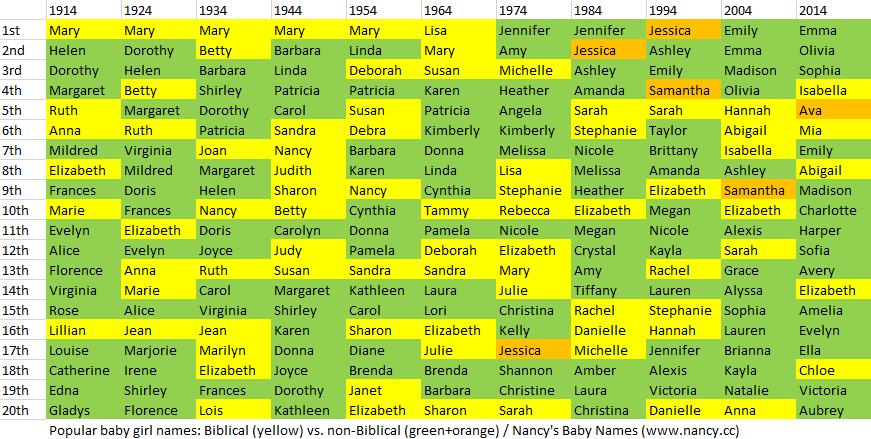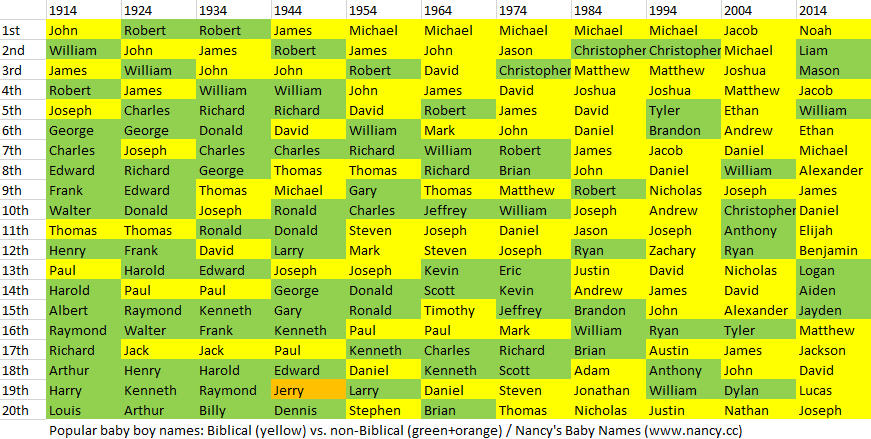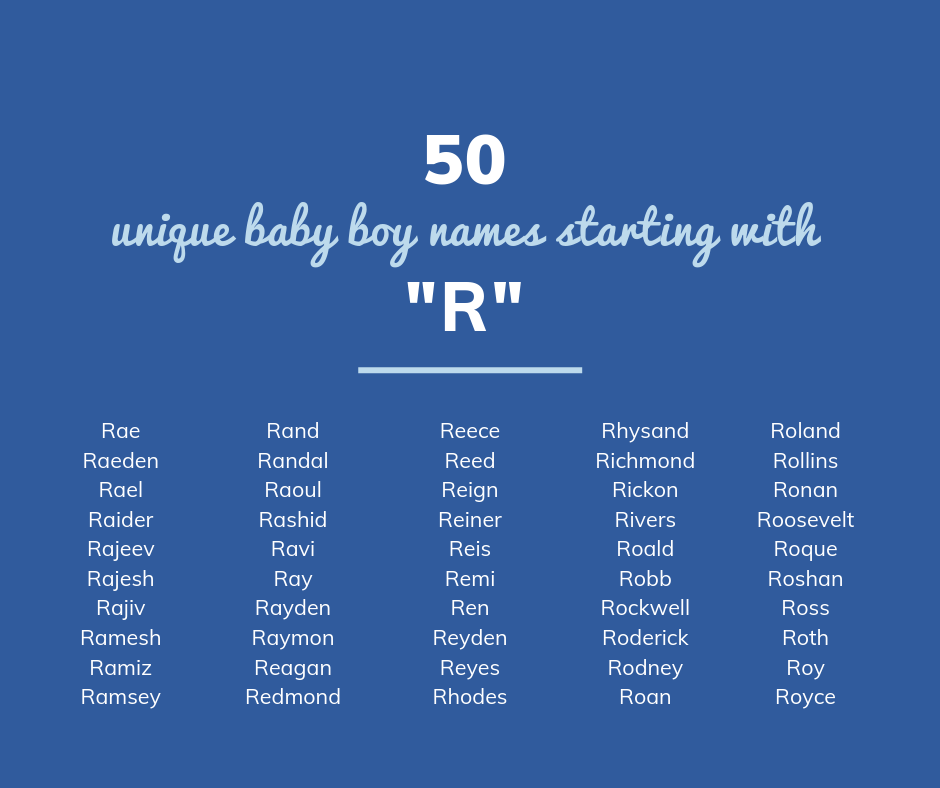Strong boy bible names: Bible Names for Boys | Nameberry
Posted onWhat’s in a Biblical name
Of the 10 most popular boys’ names given to babies in 2000, eight are found in the Bible. Four of the top 10 girls’ names are there as well. Many parents don’t even think about where a name comes from when they give their children names. They just like the sound or have a friend or relative with that name.
But in the days of the Bible, names were much more meaningful. How would you like to be named Hairy, or Refreshment, or The Spoil Speeds, the Prey Hastens? Your name may actually have a meaning like this, but it’s not so obvious. You’d have to look in a book of names to find out what it means.
«In the Bible, many names said just what they meant,» says Prof. David Noel Freedman of the Department of History at the University of California, San Diego. Names were more than just labels. To ancient Hebrews and Babylonians, nothing existed until it had a name. Its name expressed its character.
So if parents named a child Grace, they expected the child to be graceful.
In the Biblical story of Nabal, he did something foolish. His wife, Abigail, said «as his name is, so is he: Nabal [fool] is his name, and folly is with him» (I Samuel 25:25). «It’s hard to believe that his parents actually named him ‘Stupid,’ » Dr. Freedman says. «We don’t know for sure, but the name may have had another meaning and it just happened to also sound the same as Fool, like the words ‘stair’ and ‘stare’ sound alike but mean different things.»
Other names worked out a lot better. Joseph and Mary were instructed to name their son Jesus. That’s a Greek form of the name Joshua, which means «savior.» Esau had a lot of hair when he was born, so his parents named him Hairy.
Job and his wife might not have been thinking about character when they named some of their daughters. Kerenhappuch means «horn of antimony» (black eye shadow), but maybe she just had thick eyelashes. Keziah might have been a type of perfume or even a spice for food. Their third daughter was named Jemimah, which means dove.
How about a girl named ‘Lipstick’?
If people followed this practice today, girls might have names like Mascara, Lipstick, or Nutmeg. (Actually, Cinnamon has been used as a girl’s name recently, so naming girls after spices is still a possibility.)
People in Biblical times even changed their names when they felt they had greatly changed as a person. When Jesus wanted to emphasize that Simon would be a steadfast upholder of his teachings, he gave him the name Peter, based on the Greek word for rock. Jacob’s name means «supplanter,» and he lived up to his name when he stole the inherited rights belonging to his older brother, Esau. When he became a changed man, he changed his name to Israel (he strives with God).
Many Bible names contain «El» or «Yah,» which are Hebrew words for God. Notice the «el» at the end of Michael, Daniel, and Samuel. Can you hear the «yah» at the end of Obadiah, Nehemiah, and Jeremiah?
In Old Testament times, children were usually named by their mothers.
Because a name was so much a part of a person, if you acted «in someone’s name,» you acted with their authority. That’s why Mordecai could write a command in the name of King Ahasuerus and it became law (Exodus 8:8-10).
Prophets sometimes spoke «in the name of God» to emphasize their authority. By declaring something in the name of God, they declared that they spoke for God Himself.
Unfortunately for their children, prophets also had a tendency to give their kids names related to their prophesies. Hosea felt the people of Israel didn’t deserve God’s mercy or protection, so he named a daughter Loruhamah (not pitied) and a son Loammi (not my people).
And it was Isaiah who signified the destruction of cities Rezin and Pekah by naming his son Mahershalalhashbaz (the spoil speeds, the prey hastens). If we named children after events today, they might be called Question the Vote Count or March Madness.
‘This is my son, Vulture’
People in the Bible who traveled around living in tents also named their children after the animals they saw, especially if the child showed any characteristics of the animal.
They named them Gazelle (Zibiah), Mountain Sheep (Zimri), even Vulture (Aiah). They also chose names of the features around them such as Cliff (Sela), Meadow (Abel), or Hill (Gibeon). Would parents living in cities today ever call their children High-Rise or Billboard?
After about the 5th century B.C., it became more customary to name a child after a relative. And as people from different cultures mixed together, names were borrowed from other traditions. The meaning of the borrowed name might be lost.
Today we still have some names with obvious meaning: Grace, Joy, April. (Can you think of others? Lefty, maybe? Or Tiger?) Most of us don’t give much thought to what our names mean. We may not even be sure where it came from. It’s the opposite of the Biblical tradition.
Most popular names
These were the most popular names for babies born in the United States last year. The ones in bold are from the Bible. (What do the names mean? See story, next page.)
Boys
1. Michael
2. Jacob
3. Matthew
4. Joseph
5. Christopher
6. Nicholas
7. Andrew
8. William
9. Joshua
10. Daniel
Girls
1. Hannah
2. Madison
3. Elizabeth
4. Alexis
5. Sarah
6. Taylor
7. Lauren
8. Jessica
9. Ashley
10. Samantha
What does your name mean?
The meaning of some ancient names isn’t always clear, but here are some Bible names still used today, and their meanings. (All are Hebrew in origin unless otherwise indicated) If your name isn’t listed here and you’d like to know its meaning, look in a book of names for new babies, or go to: www.
Abigail — The father is rejoicing
Adam — Ruddy, red, formed; earth
Andrew — (Greek) Manly
Asher — Happy
Daniel — God has judged
David — Beloved one
Elijah — My God is Yahweh
Elizabeth — Promise of God
Esther — (Persian) Star
Eve — Life
Hannah — Grace
Jacob — Heel-grabber, usurper
Jeremiah — Yahweh founds or lifts up
John — Yahweh has been gracious
Joseph — May He (Yahweh) add
Joshua — Savior, salvation
Josiah — (Heb./Arabic) Yahweh (God) heals
Mark — (Greek/Latin) A large hammer
Martha — (Aramaic) Lady, mistress
Matthew — Gift of Yahweh
Micah, Michael — Who is like God?
Naomi — My delight
Nathan — God has given; gift
Nicholas — Conqueror, victor, victory
Paul — (Latin) Little
Rachel — Ewe
Ruth — Refreshment, reviving; beautiful friend
Samuel — Name of God
Sarah — Princess
Sharon — A plain
(c) Copyright 2001.
20 baby names that mean miracle
Babies are little blessings in our world, but it would get a little confusing having hundreds of kids named Miracle running around. So here are 20 baby names that mean miracle.
Boy names that mean miracle
1. Loreto
This name is derived from a town called Lauretum. In the 13th century, the Virgin Mary’s house was said to have been flown by an angel from Nazareth to Lauretum. Give your child this Italian name meaning “miraculous” and hopefully he will be quite angelic. Bonus: The name can be unisex!
2. Eijaz
Eijaz is a popular Arabic name that means “miracle.” We love how strong and elegant it sounds.
3. Aaron
If you like a biblical name, Aaron might be your perfect match. Aaron was Moses’s older brother, who was the keeper by God’s command. It means “miraculous.” 20 baby names that mean strong
4.
This beautiful Spanish name means “miracle” or “wonder.” What’s great about it is you can add an “s” to it and it becomes the feminine variation.
5. Thaddeus
Are you a fan of the yellow sponge who lives in a pineapple under the sea? The name Thaddeus has appeared in SpongeBob SquarePants, and while it may have gotten the blessing from a sponge, its literal meaning is “a blessing from God.”
6. Mathew
Looking for a classic name with a deep meaning? Behold Mathew. This Hebrew name means “gift from God.”
7. Mikelle
With its unique twist on the traditional spelling of Michael, this Latin name also means “gift from God.”
8. Benedict
As much as the name Benedict brings up images of England (and a certain Cumberbatch), the name is actually Latin in origin and means “blessed.” Bennett is also a cute option with the same meaning.
9. Asher
Asher is a modern-day name with a biblical twist.
10. Barack
Barack Obama has made this name famous and he inherited the moniker from his father. The name is Swahili in origin, and the Arabic root of the name is “blessing.”
Girl names that mean miracle
11. Marvel
For all you comic book fans, this powerful name is fitting for your little Wonder Woman. Marvel is a French name meaning “miracle.” You might also like Marvella, which means “miracle to marvel at.”
12. Jane
Jane is definitely not plain. The name is actually highly symbolic, coming from Hebrew origins and meaning “a gift from God.”
13. Amari
Adorn your little work of art with this strong yet feminine name. This American name means “miracle of God.”
14. Mireya
If you’re looking for a name that starts with an M but isn’t Miracle, Mireya is a unique choice.
15. Nasya
This elegant-sounding name is Hebrew in origin and is the perfect match for your little princess. Nasya means “miracle” and has several variants to choose from, such as Nassa.
16. Sachi
Sachi is Japanese in origin and is often the short form of Sachiko. This bold name means “miracle.”
17. Karishma
Karishma is a very old Indian and Sanskrit name meaning “miracle.” Perfect for your charismatic little one, the name is currently made famous by Bollywood actor Karishma Kapoor.
18. Jesse
This jaunty and trendy name is a common short form for Jessica. It’s also a Hebrew name meaning “blessing.”
19. Gwyneth
You little star will light up the room with her Welsh name. The name was popularized by GOOP a.k.a Gwyneth Paltrow, and we love the nickname Gwen for a little girl. This sweet name means “blessed.”
20.
This Latin name comes from the word “beatus,” which means “happy” or “blessed,” and Beatrix actually means “bringer of joy.” Your baby will definitely do that! If you want the American version, try Beatrice.
Read More:
19 baby names that mean love
21 meaningful baby names
17 cute celestial baby names
Your Pregnancy Week by Week
Subscribe to Today’s Parent’s pregnancy newsletter for weekly updates on baby’s development, how you’re feeling and what to expect next.
- Email*
- Your child’s due date*
Month223456789101112
Day12345678910111213141516171819202122232425262728293031
Year2024202320222021
- CAPTCHA
- Consent*
Yes, I would like to receive Today’s Parent‘s Pregnancy by Week newsletter.
I understand I can unsubscribe at any time.**
FILED UNDER: Baby names Creative names Newborn Parenting
90,000 List of Jewish male names and surnames
- 9000 names and surnames (male). The list will include only those with national roots, because there are jokes about their diversity: «It is impossible to meet a thing that a Jew would not pick up for himself under a surname.»
- Focusing on older relatives.
- In honor of your favorite biblical characters.
- Focusing on the Hebrew righteous.
- Aaron – “mountain”, brother of Moses, high priest.
- Abraham — is considered the forefather («father of nations»). The option is allowed — Abram .
- Adam — «earth», in honor of the first man on Earth.
- Baruch — «blessed», helper of the prophet.
- Gad — «fortune», son of Yaakov.
- Gershom — “foreigner”, son of Moses.
- David – “beloved”, the family of Jewish kings descended from him.
- Dov — « bear», the personification of strength and dexterity.
- Zerach — «radiance», the son of Judah.
- Israel — «Wrestling with God», valid options: Israel, Israel.
- Yitzhak – “preparing to laugh”, the son of Abraham, whom he was preparing to sacrifice. Options — Itzik, Isaac.
- Yehoshua – “God is salvation”, a disciple of Moses, conquered the lands of Israel.
- Yosef (Joseph) — «God», son of Jacob, sold into slavery in Egypt.
- Jonathan — «given by God» , friend of David.
- Kalev — «heart», a scout sent to the land of Israel.
- Leib — “lion”, is a symbol of Yehuda.
- Menachem – “comforter”, Jewish king.
- Michael — “like God”, the messenger of God, called to protect the Jewish people.
- Moshe – “saved from the water”, the greatest prophet. Options — Moishe, Moses.
- Nachum – “comforted”, minor prophet. Option — Nakhim .
- Nakhshon — «soothsayer», Aaron’s son-in-law, the first to enter the Red Sea.
- Noah – “calmness”, a righteous man who was saved from the flood.
- Obadiah – “God’s servant”, minor prophet. Options — Ovadia, Obadiah.
- Pesach – “missed”, the name of Passover.
- Pinchas — «serpent’s mouth», the grandson of Aaron, who averted God’s wrath from the Israelites.
- Raphael — «healed by God», healing angel.
- Tankhum – “consolation”, sage of the Talmud.
- Uriel – “my light is God”, the name of an angel.
- Faivel — «breastfed» in Yiddish. Options — Faivish, Feivel, Feishiv, Feivish.
- Chagai – “celebrating”, minor prophet, grandson of Yaakov. Option — Hagi .
- Hanan — “pardoned”, the tribe of Benjamin began with him.
- Hanoch — «sanctified», the son of Cain.
- Zadok — “the righteous one”, who pacified the rebellion against David.
- Zion — «excellence», used as a synonym for Jerusalem.
- Zephanius – “hidden by God”, minor prophet.
- Shalom — «peace», king of Israel. Shimon – “heard by God”, son of Yaakov. Option — Simon .
- Shmuel – “name of God”, prophet.
- Ephraim — «fruitful», grandson of Yaakov.
- Yaakov – “overtaking”, forefather. Options — Jacob, Yakov, Yankee, Yankel.
- On behalf of the father or biblical characters: Benjamin, Israel, David, Abram.
- From female names: Rivman (husband of Riva), Tsivyan (name Tsivya), Mirkin (Mirka).
- From the appearance or character of the owner: Schwarz («black»), Weissbard («white beard»).
- Profession: Rabinowitz (“rabbi”), Dayan (“judge”).
- From geographical names: Lifshitz («Silesian city»), Gurevich (Czech town).
- From any things that occur in life. They are called decorative: Bernstein («amber»), Yaglom («diamond»).
- Home
- News and Society
- / Culture
Church traditions
If the Orthodox used to look at the Saints to choose a name for a newborn, the Jews always chose in three ways:
Kabbalah teaches that the letters in the name are a connection with spiritual forces, so in practice there are cases when seriously ill people are called double names, adding Chaim (life). In the books of Sholom Aleichem and Isaac Babel, such options are quite common.
The list of Jewish male names will include only Hebrew (or Yiddish), although since 1917 any names are allowed in Russia. Everywhere Barukhs and Berls turned into Borisov, and Leiba into Lviv. In other countries (Palestine) there were reverse processes, which were strictly monitored by the state. The naming of boys occurs during circumcision — on the eighth day from birth. Consider the most common Jewish male names.
Alphabetical list (A to M) with translation
The list of Jewish male names includes the most common ones, without borrowings.
The second part of the alphabet
The list of Jewish male names beginning with the last letters of the alphabet is the most significant, so we should focus on the most important ones.
Borrowed names
Are there any borrowed Jewish male names? The list can be replenished with those that appeared in everyday life, while the Talmud did not play an important role. By naming children after relatives, the Jews contribute to their spread. From the Hebrew language came the names: Meir, Menuha, Nechama. The Babylonians brought Mordechai, Chaldeans — Atlai and Bebai. Greek dominion gave the Jews the name Alexander (option — C ender ). Georgian Jews have: Heraclius, Guram ; at Tajik — Bovojon, Rubensivi, Estermo.
Their peculiarity is a small distribution area. There are names that appeared because of beliefs. So, the name Alter (“old man”) was called all newborns, but after a month it was changed.
Jewish surnames
The list of Jewish male names is very important, because before the beginning of the 19th century they did not have surnames (they appeared in the Austrian Empire at the end of the 18th century). How were they created?
As we have seen, the origin of surnames are Jewish male names, a list of which is presented in the text.
Jewish men: appearance, character traits
The roots of the Jewish nation go back to the ancient kingdoms of Israel and Judah. This is a people who have existed for more than 2000 years without their own state, and now many of them are scattered around the world. What amazing and distinctive features …
more
What are the most famous Jews of Russia: a list with a photo
Since ancient times, Jews have been the most persecuted people — both in Russia and in other countries. Meanwhile, there are a lot of really talented, outstanding people among this nation. Who is included in the list of the most famous Jews of Russia, past and present?
further
What are the strongest male names — list, characteristics and …
Even in Ancient Rus’, people believed that the name carries a hidden meaning.
more
Jews: characteristics. How to recognize a Jew?
So, according to official data, 43% of Jews live in Israel, 39% — in the United States, and the rest — in various parts of the world. Many of them live very close to us. Do you know how to recognize a Jew among Russians, Germans, Caucasians and others…
more
What are the most popular European names for boys
Despite many differences, common European male names have a lot in common. They are united by popularity not only on their native continent, but also beyond its borders, deep meaning and beautiful sound.
next
Biblical male and female names, their meanings and translation
Interest in the history of the appearance of names has always been high among people.
more
Jewish surnames — origin
As a popular joke says, there is no such object in the world that would not serve as food for a Chinese, and a surname for a Jew. This is partly true, since the origin of Jewish surnames has its own history, numbering more than three hundred years. We can say that almost all Jewish surnames are created artificially.
next
Azerbaijani surnames and names, their meaning
Azerbaijani belongs to the group of Turkic languages.
next
Jewish humor and jokes
For decades, the Jewish anecdote meant something completely miserable-Soviet about Abram and Sarah, with a burr, in which, presumably, the main humor lurked. Openings await us… (V. Shenderovich)
more
The name Moses: meaning and origin, specific character traits, fate
From the moment it becomes known that a child will soon appear in the family, parents begin to think about what name to choose for their child. After all, it is no secret that it has a great influence on the fate of a person, endows him with a set of qualities and, in some way, will allow you to know the future of the baby.
further
Susan Michael: What God’s Names Say in the Bible
More than 100 «descriptive» names of God are woven into the stories of the Bible.
And we can learn a lot by studying these ancient names, because the character of God does not change. And as He is today, so He will be forever.
El Shaddai
One of these descriptive names is God Almighty, or in Hebrew, El Shaddai. The first part of the Hebrew version, «el», is an abbreviated form of the word «Elohim», referring to God’s power; Shaddai means «mighty» or «strong». In Genesis 17, God revealed himself to Abraham as El Shaddai, God Almighty. This name reflected God’s ability to do what He set out to do, no matter how impossible it seemed. He was going to make a great nation out of Abraham and his barren wife.
Like El Shaddai, He will do the same for us. We can trust someone who is able to keep his promises. With Almighty God, “all things are possible” (Matthew 19:26).
El Gibor
Another similar name for God, also based on the word «el», is El Gibor, meaning «the Mighty God», meaning a warrior, a valiant, strong and powerful God.
“For a child is born to us — a Son is given to us; dominion on his shoulders, and his name will be called: Wonderful, Counselor, Mighty God [El Gibor], Father of Eternity, Prince of Peace” (Isaiah 9:6).
Here Isaiah combines El Gibor with the ability of the Messiah to rule with great wisdom and power to reign. This descriptive name of God reminds us to keep a close eye on El Gibor, who is powerful in wisdom and can help us not to get tired or discouraged when we face difficult circumstances that we think we cannot handle. . But, at the same time, He is also our eternal Father and the Prince of Peace.
El Elyon
Another Hebrew name with the word «El» is El Elyon, the name «God Most High.» Elyon can be translated as «the strongest». It comes from the root of the Hebrew word meaning «to ascend» or «ascend», which implies that God is not only majestic, but also the strongest and most exalted, or in other words «stronger than all the mighty».
We encounter this word applied to God when describing Melchizedek, the mysterious king of Salem:
“And Melchizedek, king of Salem, brought out bread and wine, he was the priest of the Most High God… [El Elyon]” (Gen. 14:18).
But note that already in the next verse, Melchizedek blesses Abraham, saying: “Blessed is Abram from the Most High God [El Elyon], the Lord of heaven and earth…” (Gen. 14:19). «God Most High» has no boundaries and possesses all of creation.
The name El Elyon also appears several times in the Psalms. For example, in Psalm 56:3, the psalmist says that he is calling “to the Most High God, the God who does good to me…”. El Elyon is a reminder that our God is infinite. Being “stronger than all the mighty,” He will carry out His plans on earth and in our lives.
El-Olam
El-Olam, or “Eternal God,” is another name for God with the word “El.” The nature of God has no beginning and no end, He is free from all time constraints in which people live.
“How then do you say, O Jacob, and say, O Israel, My way is hidden from the Lord, and my work is forgotten by my God”? Do not you know? Have you not heard that the eternal Lord God [El-Olam], who created the ends of the earth, is not weary or weary? His mind is unsearchable. He gives strength to the weary, and strength to the weak.”
The Eternal God abounds with eternal power. He does not get tired and does not get tired; therefore we can turn to Him in our times of weakness and receive the strength and strength we need. We can trust in the eternal nature of El Olam, who is always faithful, longsuffering, loving and merciful. His character today is the same as it was yesterday and will always be the same.
El-Roi
After Sarah’s maid Hagar conceived a child from the lady’s husband, Abraham, Sarah began to severely oppress her, and Hagar fled into the wilderness.
“Behold, you are pregnant, and you will give birth to a son, and you will name him Ishmael, for the Lord has heard your suffering; he will be among people like a wild ass; his hands on all, and the hands of all on him; he will live in the presence of all his brothers. And Hagar called the Lord who spoke to her by this name: You are the God who sees me [El Roi]. For she said, “It is as if I saw here in the footsteps of him who sees me.” (Gen. 16:11-13)
Notice in this passage that «God who sees» (El Roi in Hebrew) is also God who hears, and these two characteristics of God are perfectly combined here. In this passage, God acknowledges Hagar’s pregnancy and gives her the name of the child: Ishmael, which means «God heard». Hagar in response calls the name of the Lord who spoke to her, «God who sees.» God’s name El Roi reminds us that when we feel unnoticed or unheard, God sees us and hears the crying of our hearts.
Jehovah-Ire
Interestingly, the name El Roi is connected with another name of God, Jehovah-Ire. In some translations of the Bible, the primary name of God, the unpronounceable tetragrammaton YHVH, is translated as Jehovah. The word Jehovah is used in the Bible in several more names of God, but Jehovah-Ire can be found only once, in the 22nd chapter of the book of Genesis.
God commanded Abraham to take his son Isaac, go up the mountain with him, and sacrifice him there. Abraham obeyed and was about to carry out the command, but God intervened and stopped him, telling Abraham that instead of Isaac, He would provide a ram entangled in the thicket for the sacrifice. As a result, Abraham consecrated the altar, on which he almost sacrificed his son, calling that place «The Lord will provide,» or Jehovah-Ireh.
Surprisingly, the Hebrew word ire comes from the same root Hebrew word roi, which we have already met in the name of God El-Roi, «God who sees.

 I understand I can unsubscribe at any time.**
I understand I can unsubscribe at any time.**




